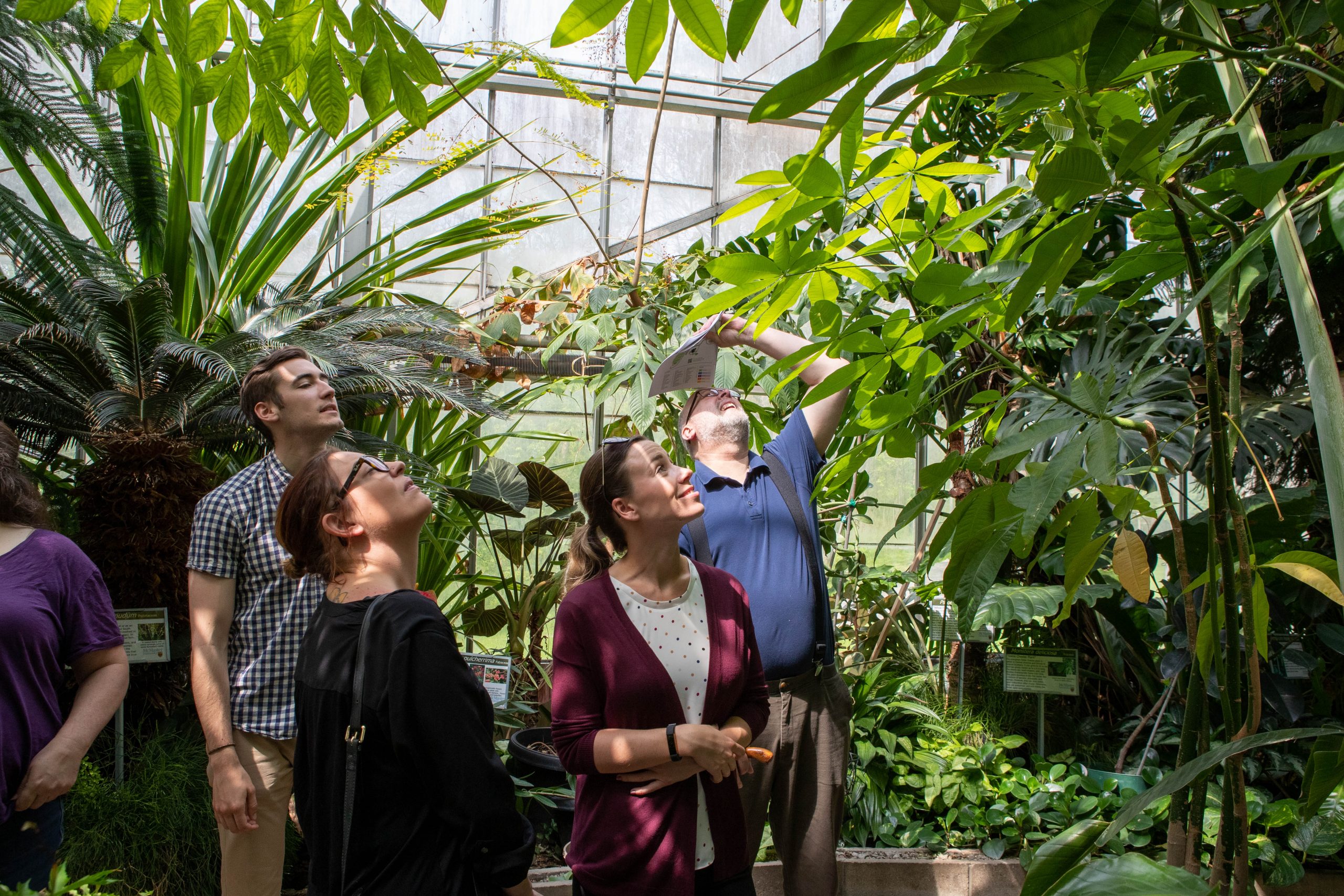Benefits Of Greenspaces: Mental Health and Academic Performance

Proven Positive Impact
Have you ever felt cheered up after taking a walk around your neighbourhood?
Studies have shown that connecting with nature is beneficial to a person’s well-being. Taking a walk in a park or even sitting amongst the plants in your yard has demonstrated positive on your mental and physical health. According to multiple studies and experiments, including Nature Fix by Florence Williams, Nature has been proven to lower stress levels, improve attention and mood, and even reduce the risk of psychiatric disorders. Living near greenery and nature also encourages a healthier lifestyle. This means it’s crucial for individuals, planners and municipalities to consider access to greenspaces when developing housing plans.
The Impact of Greenspaces on Mental Health
Florence Willimas demonstrated in Nature Fix that by spending just five minutes in a forest, your heart rate slows down, and your facial muscles loosen up, leading to a more relaxed state. Green spaces also attract birds and other wildlife species that positively affect the people interacting with them. Connecting with nature is fun and educational! You can always find birds, rabbits and deer at McMaster and its surrounding areas. Do not panic. They are friends.
Friendships are a crucial part of maintaining health as a social being. As the American Psychological Association reports in one of their feature articles, Nourished by Nature, being close to nature stimulates human compassion and empathy, which benefits students’ mental health. Close contact with community and nature deepens relationships, making students’ friend circles more trusting and understanding, simultaneously strengthening the sense of community and belonging.?
You can find a variety of birds on campus and at McMaster Forest. Florence Williams, the author of the book Nature Fix claims that listening to bird songs and even seeing birds creates alpha waves in the human brain. These are brain states that reflect feelings of calmness and alertness. That way, a person’s general awareness of their inner life increases as they experience a rich natural outer life. This is an important part of our Nature at McMaster mandate: steward McMaster natural lands to create engaging and healthy natural spaces that encourage student welfare. We encourage you to visit greenspaces and experience nature’s benefits!
The Impact of Greenspaces on Academic Performance
There are many benefits of nature in regard to academic performance and learning. Exposing yourself to nature can help to improve convergent and divergent thinking. A paper summarizing all studies on the relationship between Environment and behaviour found that “interactions with natural environments and nature-related stimuli have been found to be beneficial to cognitive performance, in particular on executive cognitive tasks with high demands on directed attention processes.”
Members of the studies who took a walk outside in nature performed significantly better on tests compared to another group that walked in an urban setting. So it’s clear that greenspaces are an important contributor to academic performance. University students experience high mental strain during their school year and especially during exams, so it is beneficial to integrate daily practices in nature that lower stress and improve academic performance.
Greenspaces On Campus
McMaster is committed to sustaining the physical and mental health of its students. To this aim, McMaster has prioritized natural spaces on campus and nearby.
Here is a list of greenspaces to visit:
-McMaster Biology Greenhouse
All students are welcome at the McMaster Biology Greenhouse, despite their area of study. This space offers an indoor topical experience all year long.
Cost: Free
Reservations: Not Required
Summer Term Hours: Tuesdays 9:30-12:30, Fridays 9:30-11:30.
Website: https://www.instagram.com/mcmasterbiogreenhouse/?hl=en
-MDCL Atrium
At the Atrium, students can enjoy indoor trees and a fountain for students’ public access. It’s a great spot to study while listening to natural waterfall sounds.
Cost: Free
Reservations: Not Required
Hours: Open Public Access During University Hours
– Nina de Villiers Garden
Located just outside University Hall, the garden has a short path that is a perfect walk during a break or after lunch.
The garden was first dedicated on September 15, 1993, in honour of Nina de Villiers, a McMaster student who was kidnapped and killed on August 9, 1991, while jogging in Burlington. The garden is a public place dedicated to peace. On your short walk, you can see many beautiful flowers and sit on one of the benches to properly enjoy your garden view.
Cost: Free
Reservations: Not Required
Hours: Open Public Access During University Hours
-Cootes Paradise
The great hiking trail system is on and near campus. There are a total of 18 km of trails, ten lookouts, five boardwalks and 12 Creek Crossings to enjoy! This area is significant for migratory birds and hosts large oak trees! You can enter the trail system by the High Ropes Course, near the stadium, next to parking lot H or in Wesdale by a hiking trail called Caleb’s Walk.
Cost: Free
Reservations: Not Required
Hours: N/a
Website: https://www.rbg.ca/gardens-trails/by-attraction/trails/trail-maps/cootes-paradise-trails/
Keep In Mind
When walking in McMaster Forest or nearby trails, we advise you to stay on the trail for your safety. Always dress accordingly to the weather to prevent sunburns and unwanted ticks.
What is your favourite greenspace on campus? Tell us by tagging @naturemcmaster on Instagram.
